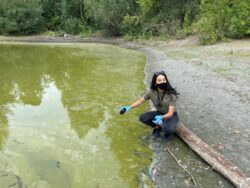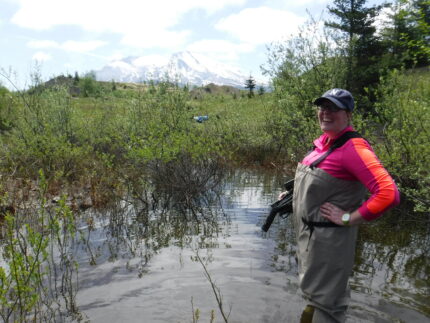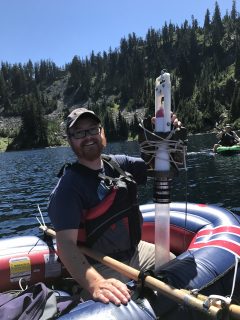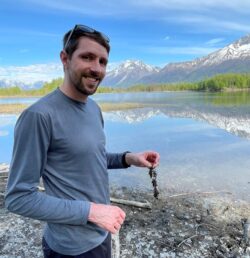Board
2025 -2026 Officers
President Elect: Darren Brandt
President : Wafa Tafesh
Past President: Angela Strecker
Secretary: Marisa Burghdoff
Treasurer: Will Hobbs
2025 -2026 Directors
- Anna Mostovetsky
- Katie Ewen
- Tim Clark (Clark)
- Wes Glisson
- Jamie Brunner
- Brian Turner
- McKenzie Frazier
- Pilar Deniston
- Elise Oertel
- Cathy Chen
2025 – 2026 Committees
By-Laws/Public Policy and Legislative:
Tim Clark, Curtis DeGasperi, Chris Knutson, Mark Systma, Marisa Burghdoff
Membership/Nominations/Elections:
Angela Strecker, Wafa Tafesh, Marisa Burghdoff
Communications/Website/Social Media:
Marisa Burghdoff, Will Hobbs, Anna Mostovetsky, Katie Ewen, Katie Sweeney
Annual Conference:
Wafa Tafesh, Angela Strecker, Curtis DeGasperi, Jeremy Walls, Darren Brandt, Jamie Brunner, Will Hobbs
Scholarship:
Will Hobbs, Jeremy Walls, Wes Glisson
Diversity Equity and Inclusion/Outreach/Student Affairs:
Ty Stephenson, Wes Glisson, Tim Clark, Katie Ewen
Western Conference:
Katie Sweeney, Anna Mostovetsky, Wafa Tafesh, Ty Stephenson
Fundraising and Grants:
Darren Brandt, Will Hobbs, Jamie Brunner, Angela Strecker
OFFICER BIOGRAPHIES
Darren Brandt, President Elect (2025-2028)
 Darren has a B.S. in Biology and an M.S. in Aquatic Ecology from Utah State University. He worked for Idaho’s Department of Environmental Quality for 10 years where he managed the surface water programs for the Twin Falls and Coeur d’Alene offices. In 2003 he became a private consultant and is the President and Limnologist for Advanced Eco-Solutions Inc. He specializes in nutrient chemistry and lower trophic level dynamics in western lakes. He also does extensive work on HABS throughout Idaho. He has served on the WALPA Board for two previous terms.
Darren has a B.S. in Biology and an M.S. in Aquatic Ecology from Utah State University. He worked for Idaho’s Department of Environmental Quality for 10 years where he managed the surface water programs for the Twin Falls and Coeur d’Alene offices. In 2003 he became a private consultant and is the President and Limnologist for Advanced Eco-Solutions Inc. He specializes in nutrient chemistry and lower trophic level dynamics in western lakes. He also does extensive work on HABS throughout Idaho. He has served on the WALPA Board for two previous terms.
Wafa Tafesh, President (2024-2027)
Wafa is a University of Washington graduate and has worked on various projects focused on environmental public health. She began her career as an intern with the Seattle non-profit, The Duwamish River Cleanup Coalition, hosting Rain2River walks in Seattle’s neighborhoods. Since then she has worked with the Washington Department of Health as a field sampler (oysters) during the Vibrio parahaemolyticus season and as Technical Program Advisor for the Office of Drinking Water. She has worked with Recology Cleanscapes managing stormwater and hazardous waste compliance. Most recently, she acted as a Health and Environmental Investigator in King County’s Hazardous Waste Management Program. Wafa currently works with King County’s Department of Natural Resources and Parks as a Water Quality Planner. Her work includes water quality sampling, managing water quality data, conducting quality assurance reviews, and assisting with report writing. She supports the Lake Stewardship Program, toxic algae response team, and lake swimming beach bacteria monitoring program.
Angela Strecker, Past President (2023-2026)
Angela Strecker is the Director of the Institute for Watershed Studies and faculty in the Department of Environmental Sciences at Western Washington University. Prior to arriving at WWU, she was faculty in the Department of Environmental Science and Management at Portland State University and Director of the Center for Lakes and Reservoirs. She completed her Bachelor of Science degree with Honours in Biology at the University of Regina and a Ph.D. at Queen’s University in Biology. Her research interests fall into several interconnected categories that revolve around the basic question of what influences biodiversity and ecosystem function at different spatial scales in aquatic systems. To do this, her lab studies anthropogenic stressors in freshwater ecosystems, such as invasive species, climate change, habitat connectivity, and contaminants. Ultimately, this work leads to the question of how ecosystem functions and services may be affected by human activities. In general, she uses the combined approach of field surveys, small-scale and large-scale experiments, and statistical modeling to test hypotheses. She also collaborates with social scientists to better understand complex socio-ecological systems. Angela was a WALPA board director from 2019-2023.
Marisa Burghdoff, Secretary (2023-2025)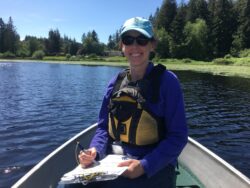
Marisa is from Snohomish County Department of Conservation and Natural Resources where she leads their lake management program. In this role, she coordinates a volunteer monitoring program, implements lake studies and restoration projects as well as behavior change outreach programs to reduce pollution to lakes. Marisa has a BS in biology from the University of Michigan, Master of Science in Environmental Science/Master of Public Affairs from Indiana University and a Master of Teaching from Western Washington University. Marisa’s love of lakes started in her home state of Michigan (though ironically, she lived in the only county without a lake in the state). Outside of work, she can be found spending time with her three kids, enjoying nature or heading to trivia with her husband.
Will Hobbs, Treasurer (2022-2024)
Will is a senior environmental scientist with the Washington State Department of Ecology, Environmental Assessment Program. He received his B.Sc. in Physical Geography from the University of British Columbia, M.Sc. in Limnology and Environmental Science at the University of Dublin, Ireland, and his PhD in Earth and Atmospheric Sciences at the University of Alberta. Prior to joining Ecology, Will was a research scientist in freshwater and paleo-ecology at the University of Nebraska, University of Minnesota and the Science Museum of Minnesota. His current scientific interests include: diatom ecology, ecological changes in lakes over decadal timescales, cyanotoxins, and the transport and bioaccumulation of toxic chemicals in rivers and lakes. With Ecology, Will works primarily on targeted source identification studies for toxic contaminants in freshwater and oversees the agency’s participation in the National Lakes Assessment with the USEPA.
BOARD OF DIRECTOR BIOGRAPHIES
Jamie Brunner, Director (2024-2026)
 Jamie Brunner has been with the Idaho Department of Environmental Quality as the Coeur d’Alene Lake Management Supervisor since 2013. Her work includes overseeing a team to collect and analyze long-term water quality data to track trends in parameters outlined in the Coeur d’Alene Lake Management Plan (LMP), collaborate with partners to provide outreach and education to a variety of groups, facilitate the implementation of phosphorus reduction projects, and share information with land managers and decision-makers throughout the Coeur d’Alene Basin in an effort to protect and improve water quality in Coeur d’Alene Lake. She has been working on natural resource issues in North Idaho since 1999, including water quality, heavy metals contamination, aquatic and riparian habitat, stormwater treatment alternatives, aquatic invasive species, and outreach and education programs aimed at increasing awareness of water quality and ways to protect it. She graduated in from the University of Idaho in 2000 with a degree in Environmental Science. In her free time, she enjoys kayaking, fishing, hiking, and snowboarding with her 13-year-old son.
Jamie Brunner has been with the Idaho Department of Environmental Quality as the Coeur d’Alene Lake Management Supervisor since 2013. Her work includes overseeing a team to collect and analyze long-term water quality data to track trends in parameters outlined in the Coeur d’Alene Lake Management Plan (LMP), collaborate with partners to provide outreach and education to a variety of groups, facilitate the implementation of phosphorus reduction projects, and share information with land managers and decision-makers throughout the Coeur d’Alene Basin in an effort to protect and improve water quality in Coeur d’Alene Lake. She has been working on natural resource issues in North Idaho since 1999, including water quality, heavy metals contamination, aquatic and riparian habitat, stormwater treatment alternatives, aquatic invasive species, and outreach and education programs aimed at increasing awareness of water quality and ways to protect it. She graduated in from the University of Idaho in 2000 with a degree in Environmental Science. In her free time, she enjoys kayaking, fishing, hiking, and snowboarding with her 13-year-old son.
Tim Clark (Clark), Director (2023-2025)
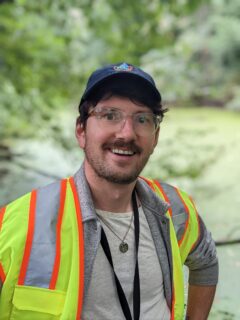 Clark is a limnologist and watershed scientist with Herrera Inc. and has a passion for enacting positive change for the environment and society. He finds a deal of joy in connecting with people to collaborate and generate novel solutions to old problems through systems thinking. Clark likes to backpack, bicycle tour, and explore the wonders of the natural world however and as frequently as he can.
Clark is a limnologist and watershed scientist with Herrera Inc. and has a passion for enacting positive change for the environment and society. He finds a deal of joy in connecting with people to collaborate and generate novel solutions to old problems through systems thinking. Clark likes to backpack, bicycle tour, and explore the wonders of the natural world however and as frequently as he can.
Katie Ewen, Director (2024-2026)
 Katie is an aquatic ecologist for the National Park Service’s North Coast and Cascades Network, stationed in North Cascades National Park. She oversees long-term monitoring of North Cascade’s alpine lakes as well as river systems throughout Washington’s National Parks. Katie earned her MS at Western Washington University, researching the impacts of glacial recession on stream temperatures in cold-water habitat. She holds a BA in English and Earth Science from Vassar College and has lived throughout the west, working as an aquatics field technician and fish biologist on Mount Rainier and in Olympic National Park, teaching as an environmental educator, coordinating amphibian citizen science work and conducting field research on glaciers, bison, moose, wolverines and mountain lions. In her free time Katie enjoys cold dips in alpine lakes, skiing, looking for animal tracks in the snow, and reading.
Katie is an aquatic ecologist for the National Park Service’s North Coast and Cascades Network, stationed in North Cascades National Park. She oversees long-term monitoring of North Cascade’s alpine lakes as well as river systems throughout Washington’s National Parks. Katie earned her MS at Western Washington University, researching the impacts of glacial recession on stream temperatures in cold-water habitat. She holds a BA in English and Earth Science from Vassar College and has lived throughout the west, working as an aquatics field technician and fish biologist on Mount Rainier and in Olympic National Park, teaching as an environmental educator, coordinating amphibian citizen science work and conducting field research on glaciers, bison, moose, wolverines and mountain lions. In her free time Katie enjoys cold dips in alpine lakes, skiing, looking for animal tracks in the snow, and reading.
Wes Glisson, Director (2023-2025)
Wes is the aquatic plant specialist for the Washington State Department of Ecology. He has a BS in Biological Sciences from Northern Illinois University and an MS in Plant Biology and Conservation from Northwestern University. Before working for the Department of Ecology, Wes was a researcher for the Chicago Botanic Garden, the University of Idaho, and most recently, the University of Minnesota’s Aquatic Invasive Species Research Center. His research has focused on the biology, ecology, and management of invasive aquatic plants. At the Department of Ecology, Wes conducts monitoring of freshwater aquatic plants throughout Washington and provides technical assistance for invasive aquatic plant management.
Anna Mostovetsky, Director (2024-2026)
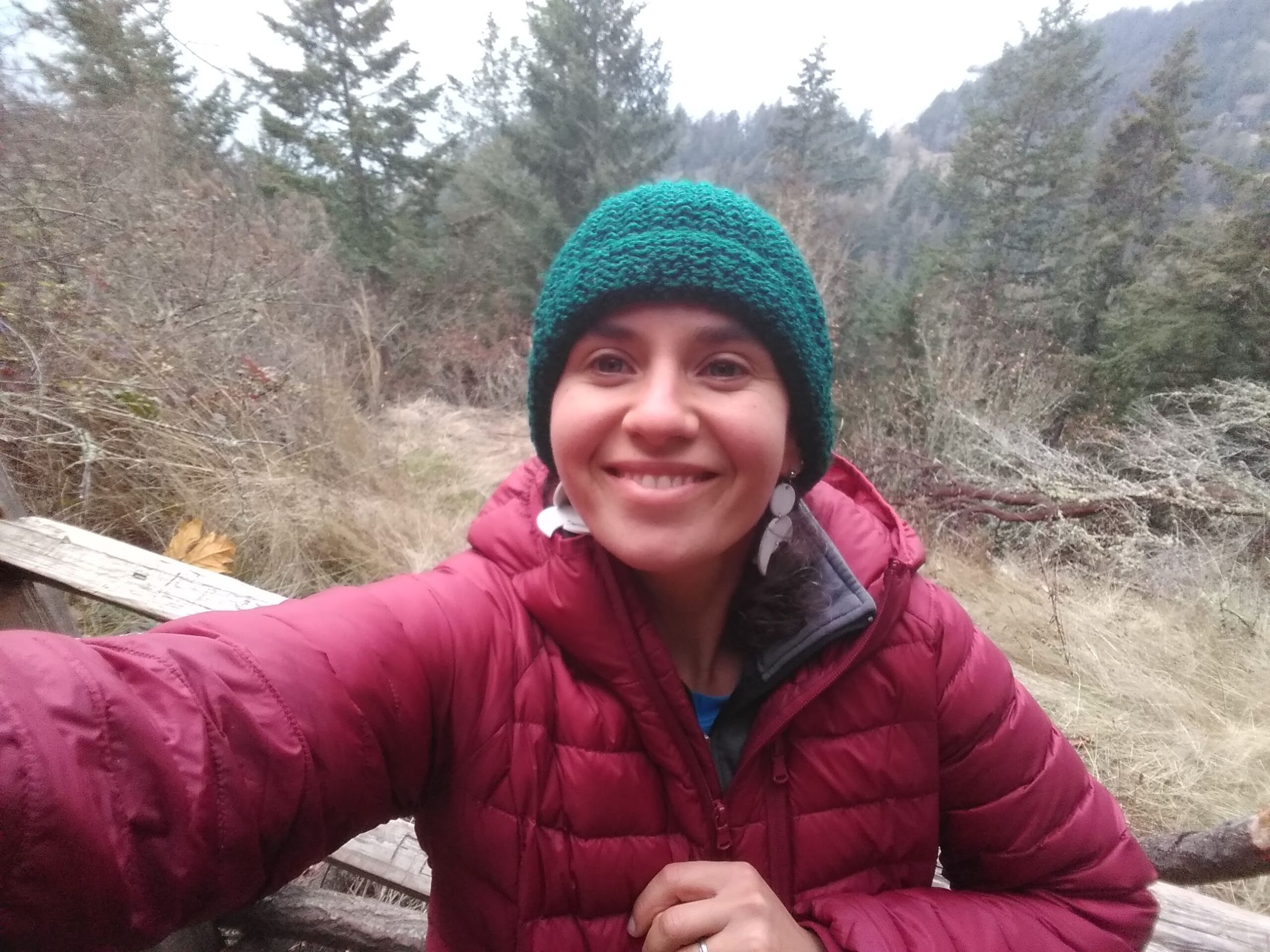
Anna Mostovetsky is an Environmental Health Specialist with Whatcom County Health and Community Services. She works in the Living Environment Program, which specializes in monitoring beach water quality, recreational shellfish biotoxins, harmful algae blooms, vector borne pathogens and water recreation facilities. She earned a B.S. degree in Environmental Science from SUNY College of Environmental Science and Forestry. After graduating she spent a decade working in the fields of hydrology with the U.S. Forest Service, salmon restoration with the Skagit Fisheries Enhancement Group and forestry practices review with the Skagit River System Cooperative. She transitioned into public health eight months before a global pandemic, which was impeccable timing on her part. In her free time Anna likes to hike, garden, fish, perform improv comedy and subject her twin daughters to outdoor activities that they will hopefully not hate when they grow up.
Brian Turner, Director (2025-2027)
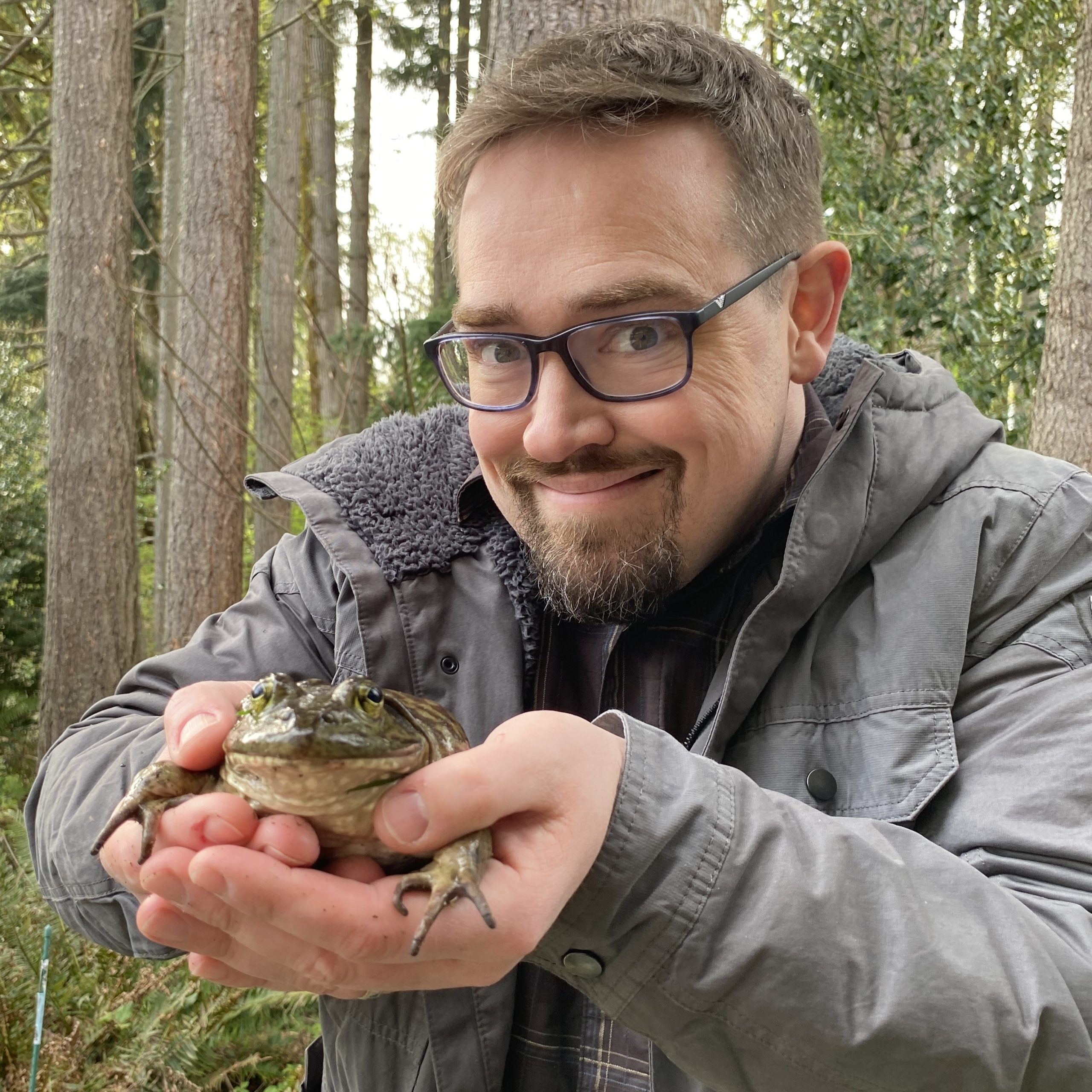 Brian Turner is the Research Scientist for the Washington Department of Fish and Wildlife’s (WDFW) Aquatic Invasive Species Division. While studying ecology and dramatic art at the University of California, Davis, Brian became engrossed in the world of non-native species research. He earned his Ph.D. at Portland State University (PSU), where his research focused on the responses of non-native aquatic species to removal efforts. He is also an avid science communicator and educator. Before his position with WDFW, Brian was an instructor at PSU, teaching topics ranging from wetland ecology, biological invasions, data analysis, science communication, and experimental design. While currently engulfed in European green crabs, he has also monitored mussels, corralled clams, neutralized nutria, sought snails, and identified insects.
Brian Turner is the Research Scientist for the Washington Department of Fish and Wildlife’s (WDFW) Aquatic Invasive Species Division. While studying ecology and dramatic art at the University of California, Davis, Brian became engrossed in the world of non-native species research. He earned his Ph.D. at Portland State University (PSU), where his research focused on the responses of non-native aquatic species to removal efforts. He is also an avid science communicator and educator. Before his position with WDFW, Brian was an instructor at PSU, teaching topics ranging from wetland ecology, biological invasions, data analysis, science communication, and experimental design. While currently engulfed in European green crabs, he has also monitored mussels, corralled clams, neutralized nutria, sought snails, and identified insects.
Cathy Chen, Student Director (2025-2027)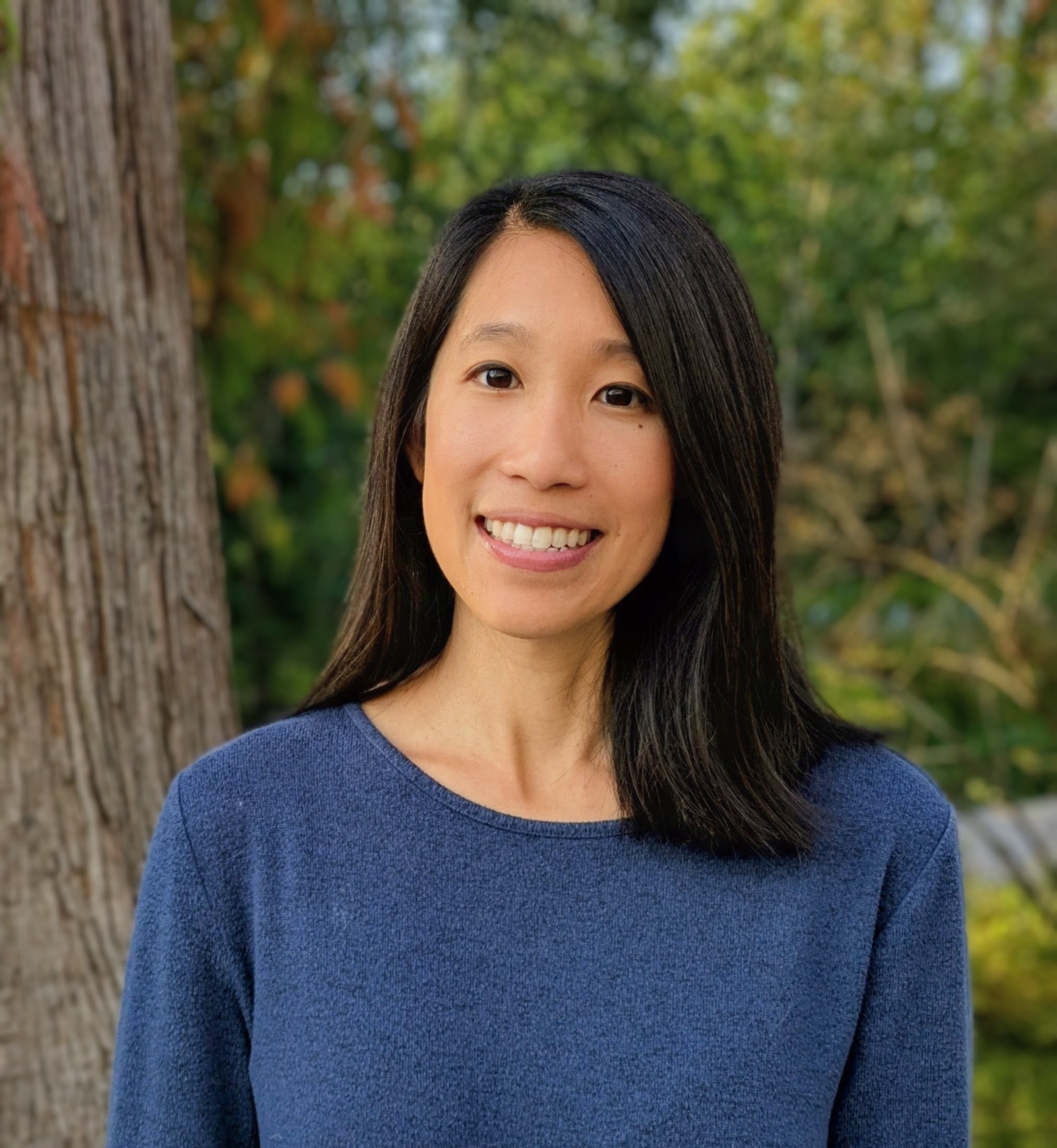
Cathy is a graduate student at the University of Idaho, pursuing a Master’s in Environmental Science and GIS Certificate. She has a B.S. in Biology from the University of Washington and M.S. in Health Services from the University of California, Davis. Her interest in aquatic ecosystems was ignited after participating in research on the ecological impacts of the Elwha Dam removal and spending a summer in western Alaska collecting data on Pacific salmon and studying parasitism in stickleback fish. More recently, she completed a coastal science internship with Herrera Environmental Consultants, where she contributed to shoreline, lake, and wetland restoration projects. Cathy also enjoys volunteering with Wild Whatcom as a grant editor and with the Washington Department of Natural Resources, assisting with eelgrass research at Cherry Point Aquatic Reserve.
McKenzie Frazier, Director (2025-2027)
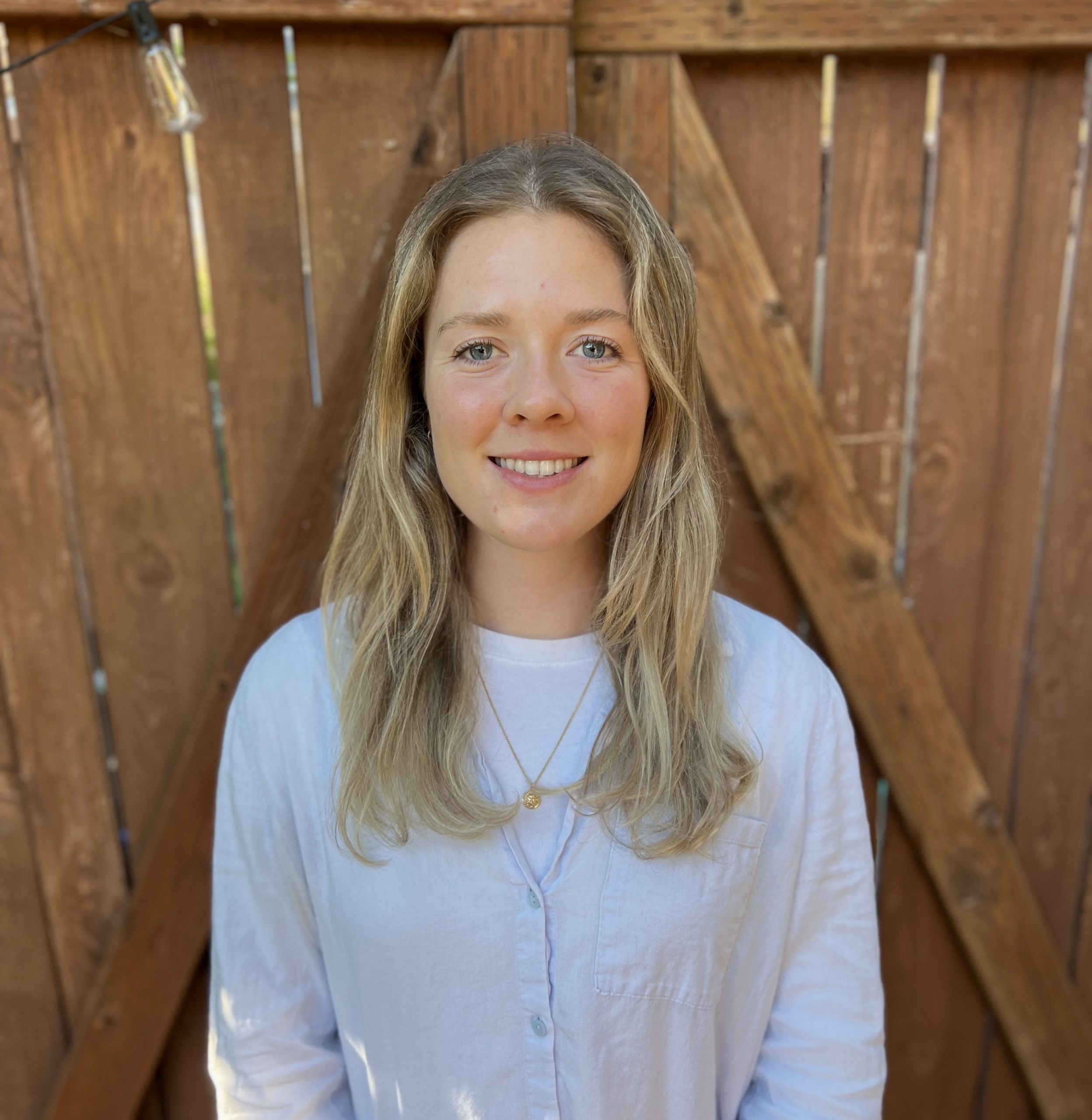 McKenzie is a regulatory specialist and limnologist at McMillen, Inc. in Portland, OR where she works on various environmental studies tied to relicensing hydroelectric projects in the Pacific Northwest. She achieved a B.S. in Biology at Hobart and William Smith Colleges and is a recent graduate of Washington State University-Vancouver where she got a M.S. in Environmental Science and worked within the Aquatic Ecology Lab. Her research experience has focused on freshwater feeding ecology ranging from micro-zooplankton grazing dynamics in large-scale reservoirs to effects of Round Goby feeding pressures in the Finger Lakes in New York State. In her free time, McKenzie enjoys hobbies such as running, flyfishing, hiking, and hanging out with friends.
McKenzie is a regulatory specialist and limnologist at McMillen, Inc. in Portland, OR where she works on various environmental studies tied to relicensing hydroelectric projects in the Pacific Northwest. She achieved a B.S. in Biology at Hobart and William Smith Colleges and is a recent graduate of Washington State University-Vancouver where she got a M.S. in Environmental Science and worked within the Aquatic Ecology Lab. Her research experience has focused on freshwater feeding ecology ranging from micro-zooplankton grazing dynamics in large-scale reservoirs to effects of Round Goby feeding pressures in the Finger Lakes in New York State. In her free time, McKenzie enjoys hobbies such as running, flyfishing, hiking, and hanging out with friends.
Pilar Deniston, Director (2025-2027)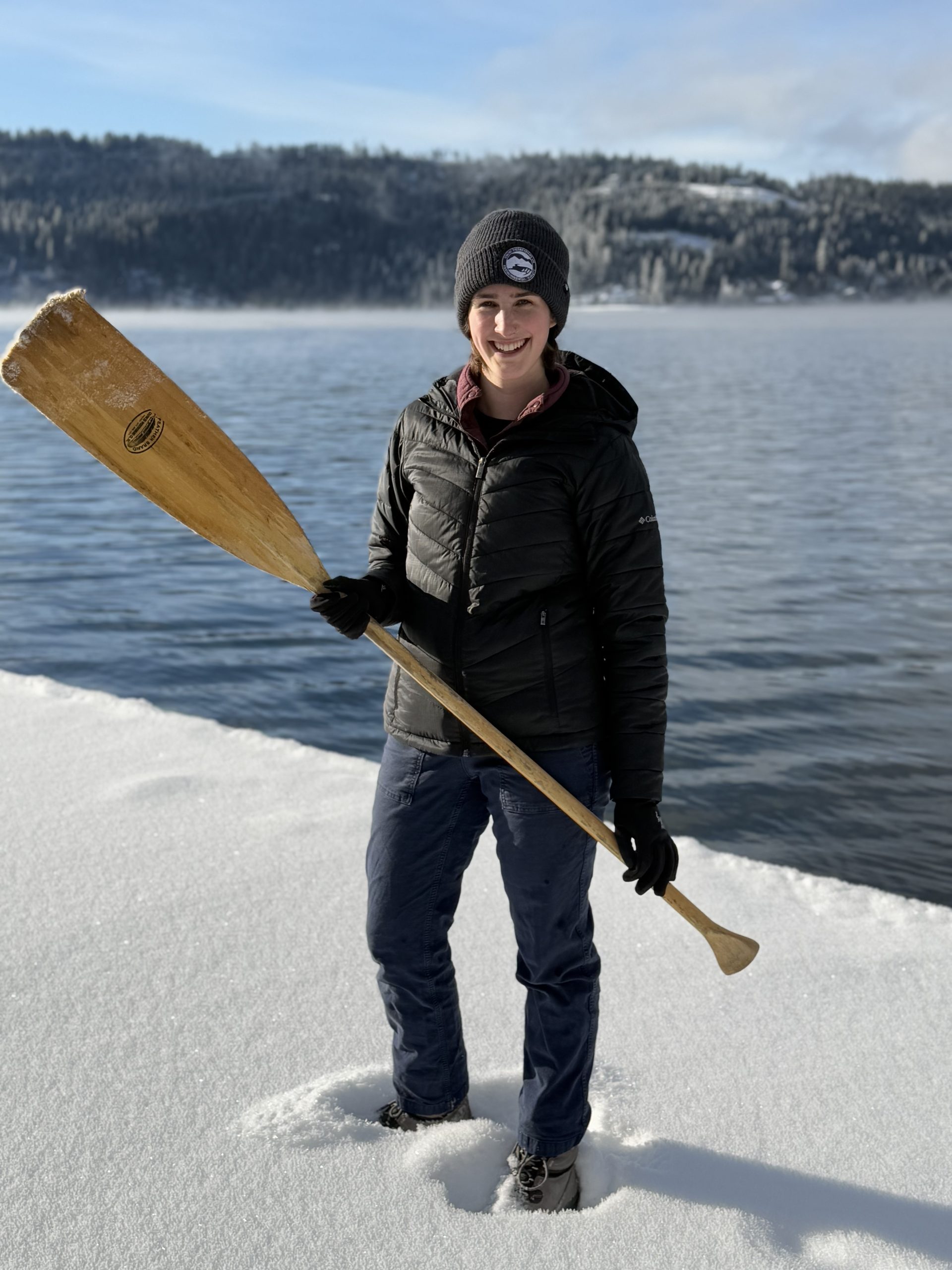
Pilar Deniston works at the Idaho Department of Environmental Quality on the Coeur d’Alene lake management team. As the American Rescue Plan Act (ARPA) Project Coordinator, she oversees nutrient reduction projects around the Coeur d’Alene basin. She also collects monthly samples, runs quality control tests, analyzes data, and teaches high schoolers about water quality. Pilar graduated from Western Washington University in 2024 with a degree in environmental science. Her love for limnology took root while working at WWU’s Institute for Watershed Studies, where three years of lake sampling and lab analyses confirmed that life is better on the water. This experience led her to a lakes internship with Snohomish County and eventually to her current position with the Idaho DEQ. Pilar’s been labeled a “water gal” since birth. She started with puddles and pools, graduated to sea kayaking and dragon boats, dabbled in outrigger canoeing and scuba diving, and made waves on the WWU waterskiing team. Let’s just say her idea of a good time usually involves a lake, a boat, and a water sample.
Elise Oertel, Director (2025-2027)
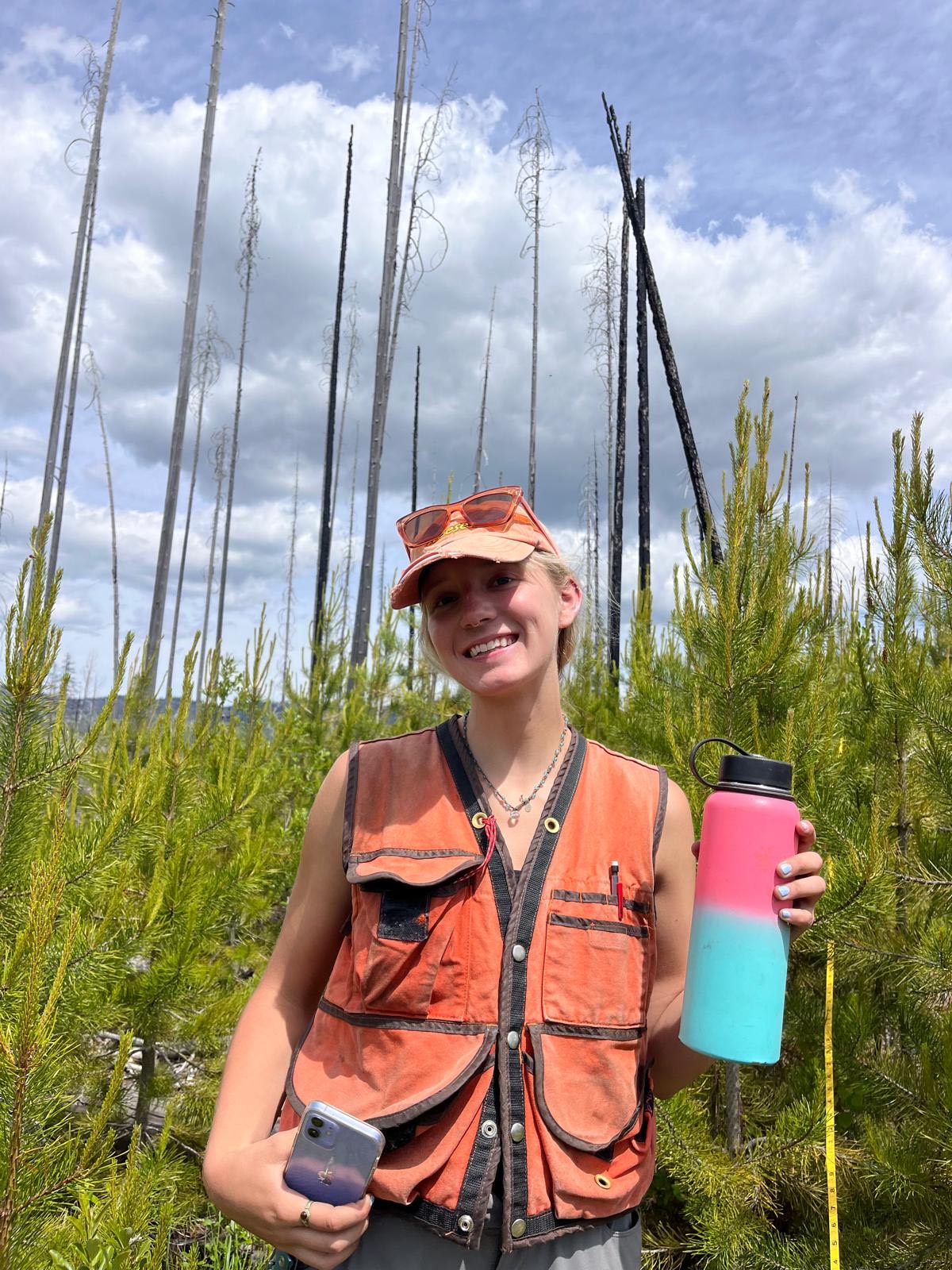 Elise Oertel is a senior at the University of Washington, originally from New Jersey, studying Environmental Science and Resource Management. This past summer Elise got the opportunity to work as an Environmental Aide on the Stream Team for King County’s Benthic Macroinvertebrate Program. In this work, Elise explored the wonders of freshwater ecosystems, and the vital roles they play on small and large scales. Additionally, Elise is the co manager of the Yesler Swamp on campus, where she gained experience in creating long term management plans and community engagement efforts within restoration. Elise is looking forward to the opportunity to learn from the expertise of WALPA’s diverse group, and to help in any way to promote lake stewardship and community involvement.
Elise Oertel is a senior at the University of Washington, originally from New Jersey, studying Environmental Science and Resource Management. This past summer Elise got the opportunity to work as an Environmental Aide on the Stream Team for King County’s Benthic Macroinvertebrate Program. In this work, Elise explored the wonders of freshwater ecosystems, and the vital roles they play on small and large scales. Additionally, Elise is the co manager of the Yesler Swamp on campus, where she gained experience in creating long term management plans and community engagement efforts within restoration. Elise is looking forward to the opportunity to learn from the expertise of WALPA’s diverse group, and to help in any way to promote lake stewardship and community involvement.

